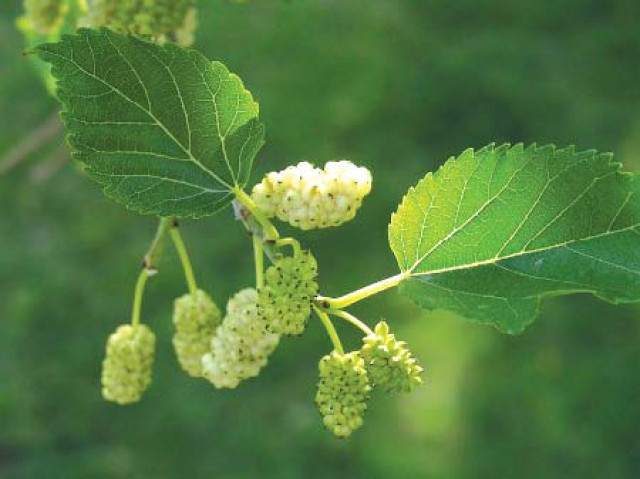Adversarial trees: The capital’s imported allergens
Paper mulberries may provide eye-candy but are also nuisance for people allergic to it.

Paper mulberries, imported during the late 50s, are a mixed blessing for the city. They may provide eye-candy, but are also a major nuisance for people allergic to their pollen.
According to Himalayan Wildlife Foundation Park Manager Shadmina Khan, a large number of mulberry trees are planted along Trail 5, one of the popular hiking tracks of the city.
“The administration was unable to cut them down because of protests from people who do not have adequate knowledge about this particular species. They simply see it as an act of depriving the capital of trees,” she added.
In warm weather, a large number of people go up Trail 5 in the early mornings and late afternoons, seemingly unaware of the existence of mulberry trees there. Eventually, they start showing symptoms of the allergy.
The pollens from mulbery trees have been ranging well into the thousands per m3 over the past few days, according to Pakistan Meteorological Department’s website.
But the situation is still controllable. Dr Asadullah Nemati, a senior chest physician at Pakistan Institute of Medical Sciences (Pims) and Dr Kausar Anis, joint executive director at Polyclinic Hospital, confirmed that a fairly large numbers of pollen allergy patients had been visiting the outpatient (OPD) and emergency departments lately, but opined that the situation was not out of control.
“If, on average, 300 patients are visiting the OPD daily, 20-25 per cent are likely to be suffering from pollen allergies,” said Dr Nemati.
He added the number of patients could increase drastically if humidity levels rise after the current rainfall. However, according to Chief Meterololigist Dr Ghulam Rasul, pollen count is unrelated to the level of humidity. Nevertheless, he said the rain was likely to continue till Sunday and the pollen count was expected to decrease.
Dr Nemati advised his patient to avoid going out early in the mornings and late evenings, to properly cover their faces, wear masks, use quilts instead of blankets, keep doors and windows closed in peak pollen hours and take their medication on time.
Unchecked imports
Dr Pervaiz Amir, an environmental expert, informed The Express Tribune that large numbers of unchecked plants of various species are being imported from different countries and planted in the capital.
“Due to the absence of a proper mechanism, especially at the airports, railways stations and seaports, no one dares to inquire about the nature of the plants being imported and their impact on the health of other living organisms,” he said.
He said people were not even aware of pollen testing facilities, which are scarcely found in the capital.
“Some people feel proud of planting imported plants in their lavish gardens but lack knowledge about their harmful effects on the health of others,” he added. However, he said, the bulk of untested plants are not located at residences, but in the city’s various nurseries.
Published in The Express Tribune, March 21st, 2011.



















COMMENTS
Comments are moderated and generally will be posted if they are on-topic and not abusive.
For more information, please see our Comments FAQ